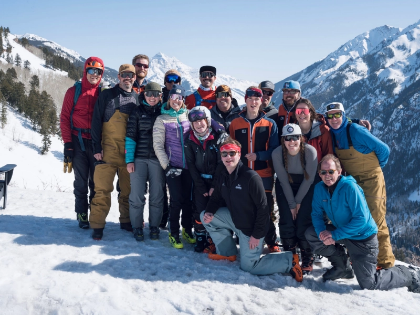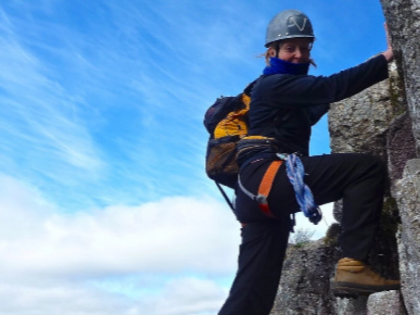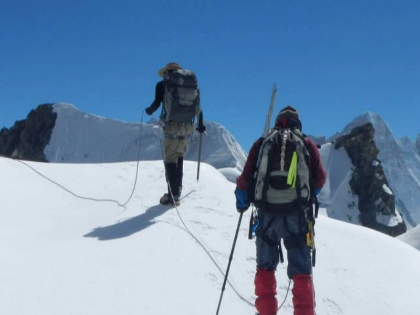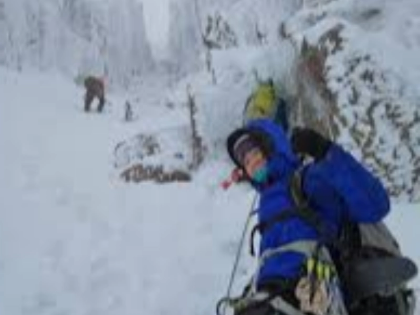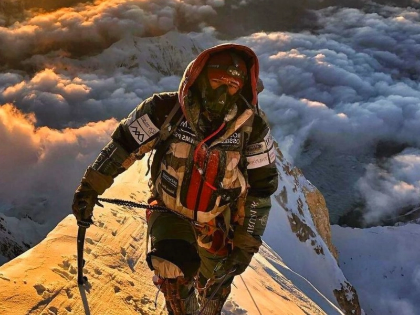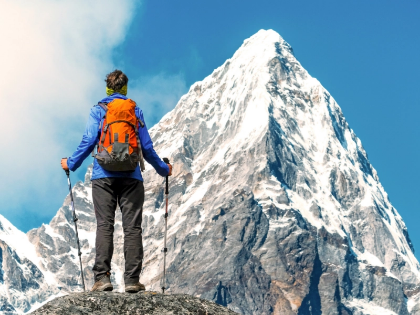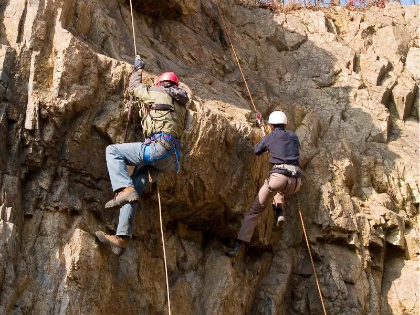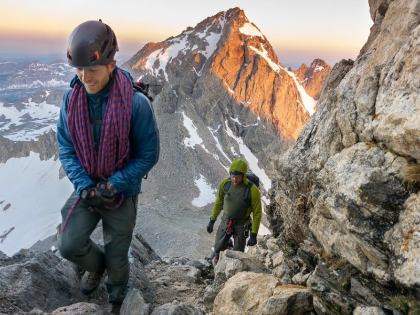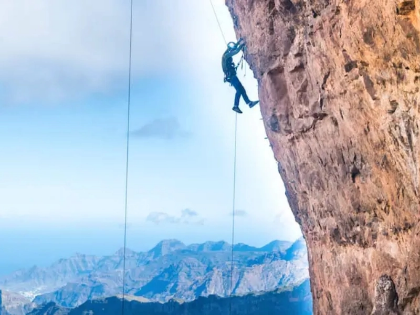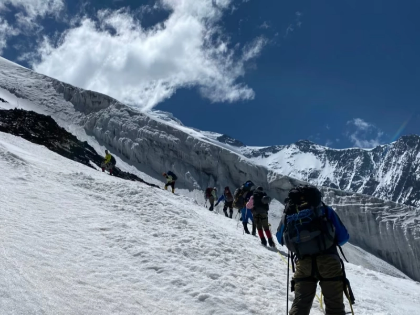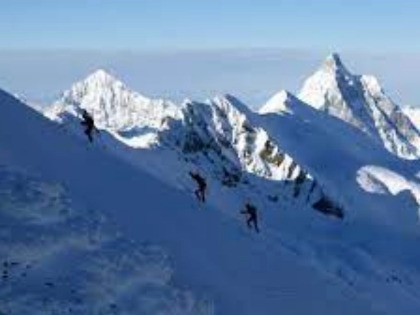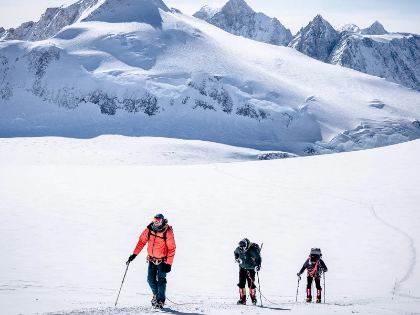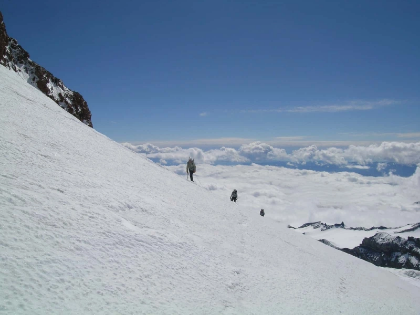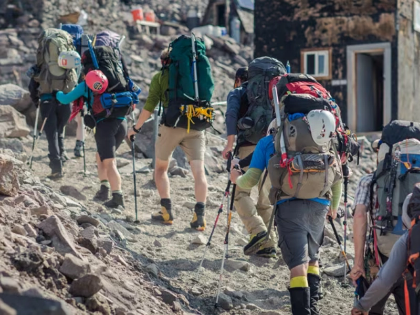Can a 40-year-old begin mountaineering?
The age range for mountaineering is unlimited. You can climb mountains all your life as long as you take care of your health. One sport that calls for a lot of muscle and tendon strength is climbing. When you first start climbing, it's crucial to go slowly and give your tendons and muscles time to heal.
Training
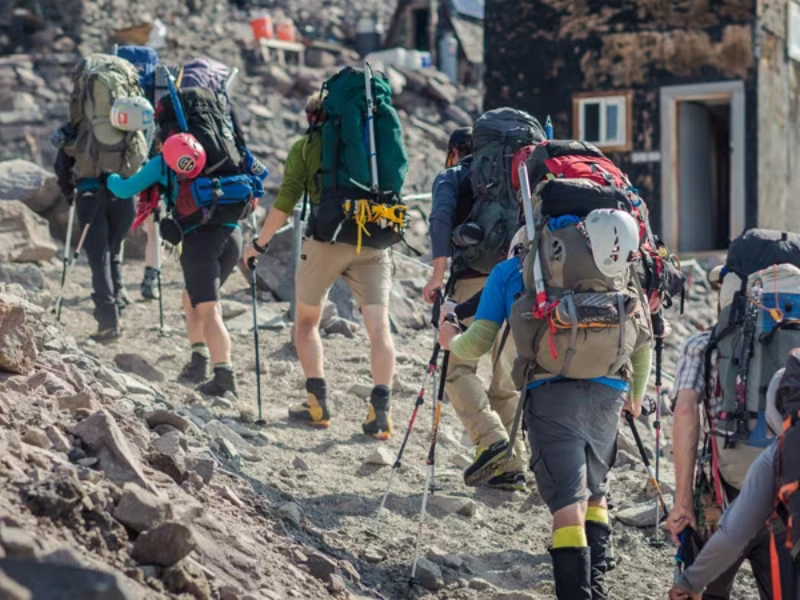
Equipment
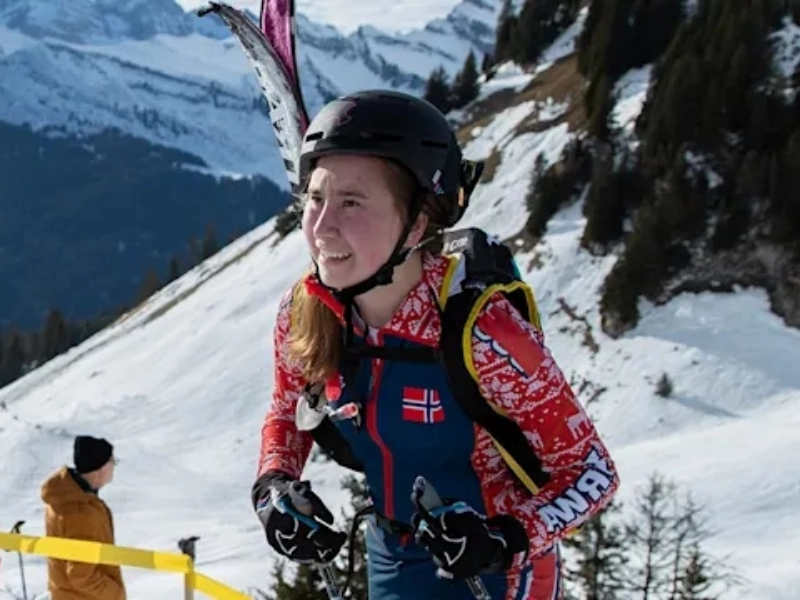 Many people begin mountaineering in their 40s, 50s, or 60s, or whenever life begins to feel a little more expansive. The expansive views and sense of adventure that come with reaching a mountain's summit genuinely transform people's lives, so they're frequently happy they did.
The same equipment needed for a winter camping trip is also needed for a climbing excursion, plus a few extra items unique to mountaineering. The most crucial of these is a harness with adjustable leg loops and ample webbing for thick winter clothes. For protection, you'll also need a set of cams, a decent helmet, and a decent pair of mountaineering boots.
Additionally, you should have a reliable navigation system. You can accomplish this by either bringing a paper map and a portable device for navigation or by downloading routes onto your GPS. One of the most frequent reasons that novice mountaineers call for help is being lost in the mountains, so be ready. Never be scared to turn around if the weather is changing, you're feeling lethargic, or you see that other people in your group are having trouble.
Many people begin mountaineering in their 40s, 50s, or 60s, or whenever life begins to feel a little more expansive. The expansive views and sense of adventure that come with reaching a mountain's summit genuinely transform people's lives, so they're frequently happy they did.
The same equipment needed for a winter camping trip is also needed for a climbing excursion, plus a few extra items unique to mountaineering. The most crucial of these is a harness with adjustable leg loops and ample webbing for thick winter clothes. For protection, you'll also need a set of cams, a decent helmet, and a decent pair of mountaineering boots.
Additionally, you should have a reliable navigation system. You can accomplish this by either bringing a paper map and a portable device for navigation or by downloading routes onto your GPS. One of the most frequent reasons that novice mountaineers call for help is being lost in the mountains, so be ready. Never be scared to turn around if the weather is changing, you're feeling lethargic, or you see that other people in your group are having trouble.
Climbing routes
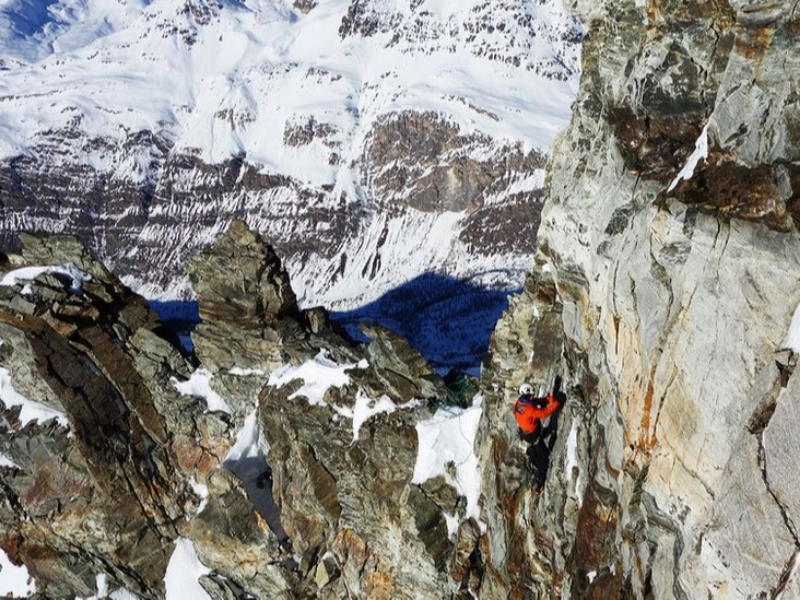 You can enjoy mountaineering in your 40s if you are an experienced climber with a solid fitness foundation and some outdoor expertise. Nonetheless, it's critical to recognize age's physical limitations. Because tendon injuries are more common in older athletes, it's crucial to start slowly and not push yourself too hard.
It's also critical to keep in mind that, particularly in terms of explosive strength, your climbing performance will begin to deteriorate after the mid-thirties. Furthermore, the body takes longer to recover from a strenuous workout; although an adolescent may recuperate in a day or two, an individual over 40 may need up to three days.
For those who genuinely love climbing, these restrictions won't stop them from doing it. You may stay active as you age if you give it a high priority in your life and maintain a regular training schedule.
You can enjoy mountaineering in your 40s if you are an experienced climber with a solid fitness foundation and some outdoor expertise. Nonetheless, it's critical to recognize age's physical limitations. Because tendon injuries are more common in older athletes, it's crucial to start slowly and not push yourself too hard.
It's also critical to keep in mind that, particularly in terms of explosive strength, your climbing performance will begin to deteriorate after the mid-thirties. Furthermore, the body takes longer to recover from a strenuous workout; although an adolescent may recuperate in a day or two, an individual over 40 may need up to three days.
For those who genuinely love climbing, these restrictions won't stop them from doing it. You may stay active as you age if you give it a high priority in your life and maintain a regular training schedule.
Safety
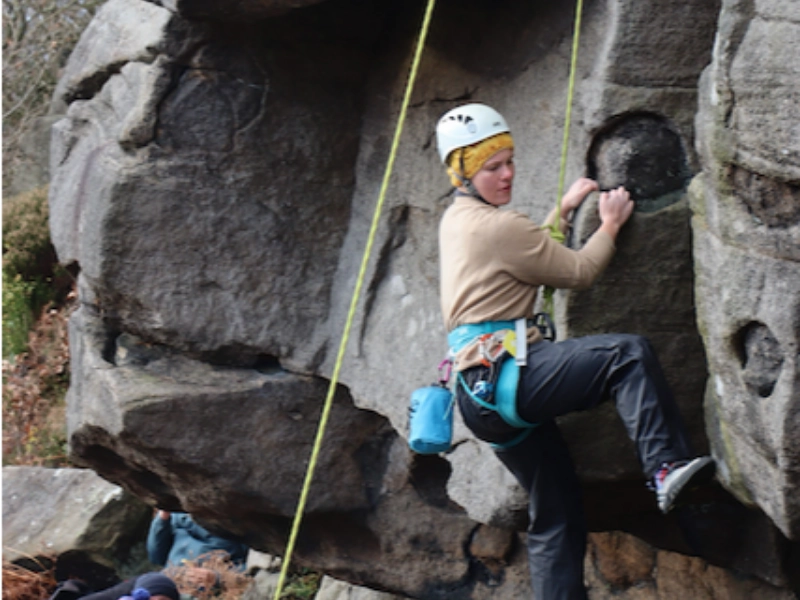 Even expert climbers may find mountaineering to be a perilous activity. Fatigue or loss of concentration can lead to falls, which account for a large number of fatalities and severe injuries on mountains.
Make sure you are adequately prepared before your mountaineering excursion in order to avoid this. This includes getting the required gear and maintaining a respectable level of physical fitness. It's crucial to select a mountain that fits your comfort zone and skill level, as well as to know what kind of route you're taking.
If you're a novice, you should also think about enrolling in a course or hiring a guide. You can learn all the necessary climbing techniques, such as how to navigate on snow and ice, from a certified mountain guide. In order to escape the harsh winter weather, it is also advised to schedule your trip during the warmer months. Also, it will be unnecessary to bring along additional clothing and equipment. In case of an emergency, you should also always have a first-aid kit and bivvy gear.
Even expert climbers may find mountaineering to be a perilous activity. Fatigue or loss of concentration can lead to falls, which account for a large number of fatalities and severe injuries on mountains.
Make sure you are adequately prepared before your mountaineering excursion in order to avoid this. This includes getting the required gear and maintaining a respectable level of physical fitness. It's crucial to select a mountain that fits your comfort zone and skill level, as well as to know what kind of route you're taking.
If you're a novice, you should also think about enrolling in a course or hiring a guide. You can learn all the necessary climbing techniques, such as how to navigate on snow and ice, from a certified mountain guide. In order to escape the harsh winter weather, it is also advised to schedule your trip during the warmer months. Also, it will be unnecessary to bring along additional clothing and equipment. In case of an emergency, you should also always have a first-aid kit and bivvy gear.
